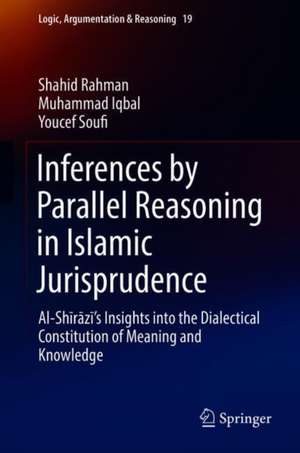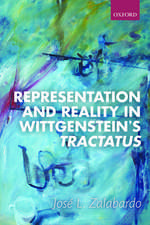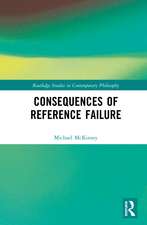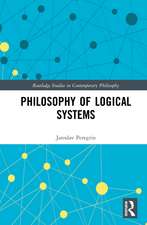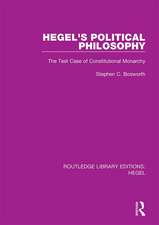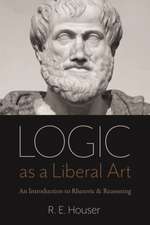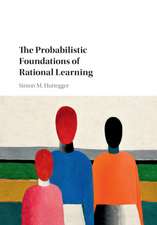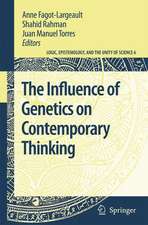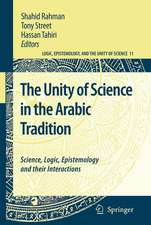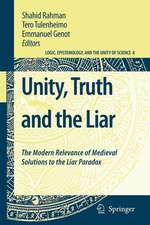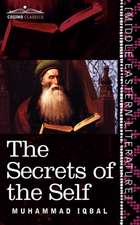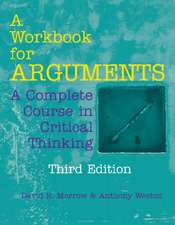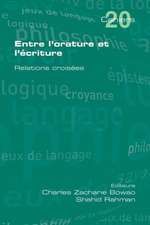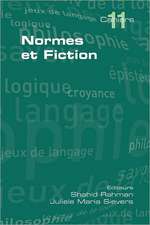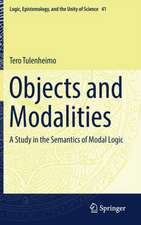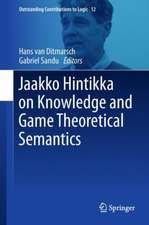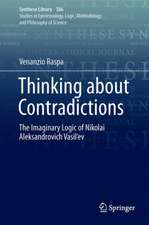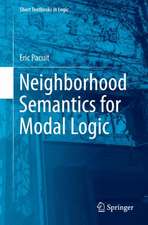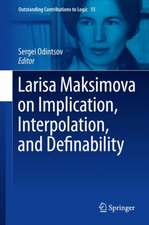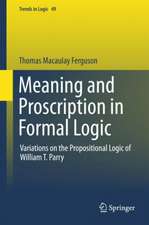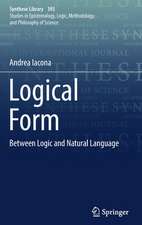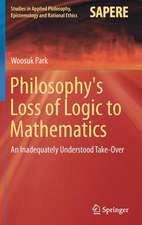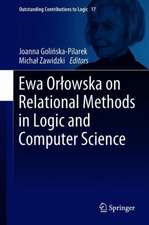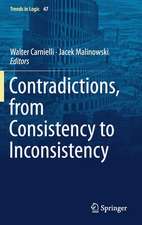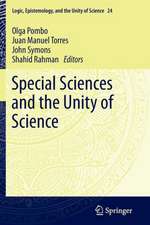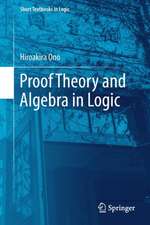Inferences by Parallel Reasoning in Islamic Jurisprudence: Al-Shīrāzī’s Insights into the Dialectical Constitution of Meaning and Knowledge: Logic, Argumentation & Reasoning, cartea 19
Autor Shahid Rahman, Muhammad Iqbal, Youcef Soufien Limba Engleză Paperback – 26 aug 2021
After an overview of the emergence of qiyās and of the work of al-Shīrāzī penned by Soufi Youcef, the authors discuss al-Shīrāzī’s classification of correlational inferences of the occasioning factor (qiyās al-'illa). The second part of the volume deliberates on the system of correlational inferences by indication and resemblance (qiyās al-dalāla, qiyās al-shabah). The third part develops the main theoretical background of the authors’ work, namely, the dialogical approach to Martin-Löf's Constructive Type Theory. The authors present this in a general form and independently of adaptations deployed in parts I and II. Part III also includes an appendix on the relevant notions of Constructive Type Theory, which has been extracted from an overview written by Ansten Klev. The book concludes with some brief remarks on contemporary approaches to analogy in Common and Civil Law and also to parallel reasoning in general.
| Toate formatele și edițiile | Preț | Express |
|---|---|---|
| Paperback (1) | 387.96 lei 6-8 săpt. | |
| Springer International Publishing – 26 aug 2021 | 387.96 lei 6-8 săpt. | |
| Hardback (1) | 395.25 lei 6-8 săpt. | |
| Springer International Publishing – 14 ian 2020 | 395.25 lei 6-8 săpt. |
Din seria Logic, Argumentation & Reasoning
- 8%
 Preț: 528.74 lei
Preț: 528.74 lei - 20%
 Preț: 580.84 lei
Preț: 580.84 lei - 15%
 Preț: 650.19 lei
Preț: 650.19 lei - 20%
 Preț: 524.13 lei
Preț: 524.13 lei - 15%
 Preț: 643.48 lei
Preț: 643.48 lei - 18%
 Preț: 723.06 lei
Preț: 723.06 lei -
 Preț: 394.12 lei
Preț: 394.12 lei - 15%
 Preț: 695.53 lei
Preț: 695.53 lei - 15%
 Preț: 643.34 lei
Preț: 643.34 lei - 20%
 Preț: 513.15 lei
Preț: 513.15 lei -
 Preț: 398.92 lei
Preț: 398.92 lei - 15%
 Preț: 643.34 lei
Preț: 643.34 lei - 15%
 Preț: 490.93 lei
Preț: 490.93 lei - 18%
 Preț: 726.23 lei
Preț: 726.23 lei - 18%
 Preț: 733.78 lei
Preț: 733.78 lei - 18%
 Preț: 895.56 lei
Preț: 895.56 lei - 15%
 Preț: 696.02 lei
Preț: 696.02 lei - 15%
 Preț: 634.68 lei
Preț: 634.68 lei -
 Preț: 354.54 lei
Preț: 354.54 lei - 18%
 Preț: 723.38 lei
Preț: 723.38 lei - 18%
 Preț: 723.56 lei
Preț: 723.56 lei - 24%
 Preț: 801.70 lei
Preț: 801.70 lei - 15%
 Preț: 634.49 lei
Preț: 634.49 lei - 18%
 Preț: 728.43 lei
Preț: 728.43 lei - 18%
 Preț: 789.98 lei
Preț: 789.98 lei - 18%
 Preț: 787.78 lei
Preț: 787.78 lei - 18%
 Preț: 918.30 lei
Preț: 918.30 lei - 15%
 Preț: 657.25 lei
Preț: 657.25 lei -
 Preț: 397.16 lei
Preț: 397.16 lei -
 Preț: 392.97 lei
Preț: 392.97 lei
Preț: 387.96 lei
Nou
Puncte Express: 582
Preț estimativ în valută:
74.25€ • 77.23$ • 61.29£
74.25€ • 77.23$ • 61.29£
Carte tipărită la comandă
Livrare economică 15-29 aprilie
Preluare comenzi: 021 569.72.76
Specificații
ISBN-13: 9783030223847
ISBN-10: 3030223841
Pagini: 268
Ilustrații: XXI, 268 p. 156 illus.
Dimensiuni: 155 x 235 mm
Greutate: 0.41 kg
Ediția:1st ed. 2019
Editura: Springer International Publishing
Colecția Springer
Seria Logic, Argumentation & Reasoning
Locul publicării:Cham, Switzerland
ISBN-10: 3030223841
Pagini: 268
Ilustrații: XXI, 268 p. 156 illus.
Dimensiuni: 155 x 235 mm
Greutate: 0.41 kg
Ediția:1st ed. 2019
Editura: Springer International Publishing
Colecția Springer
Seria Logic, Argumentation & Reasoning
Locul publicării:Cham, Switzerland
Cuprins
1. Introduction.- 2. Qiyās Al-ʿIlla.- 3. Qiyās Al-Dalāla and Qiyās Al-Shabah.- 4. Immanent Reasoning and the Dialogical Constitution of Logic.
Notă biografică
Shahid Rahman: Full-professor (classe exceptionnelle) of logic and epistemology at the Université de Lille-Nord-pas-de-Calais, Sciences Humaines et Sociales. He is also researcher at the UMR-CNRS 8163: STL. . Member (2016-2018) of the Conseil Scientifique du Réseau national des Maisons des Sciences de l’Homme. Member of the commission of the Institute Eric Weil, Director (for the French side) of the ANR-DFG Franco-German project 2012-2015 (Lille (MESHS)/Konstanz, Prof M. Armgardt): Théorie du Droit et Logique/Jurisprudenz und Logik. Studies: Masters in Philosophy, Mathematics, Philology (Erlangen-Nürnberg Universität) 1986-1989; PhD in Philosophy, Psychology, Philology , thesis on dialogical logic and constructive mathematics, 1990-1993; Habilitation in Philosophy (for the grade of professor), Universität des Saarlandes, 1994-1997. Professional Experience: Wissenschatlicher Mitarbeiter, Universität des Saarlandes, 1996-98. Researcher at the Max-Planck Institut für Informatik and at the Deutsches Forschungszentrum für Künstliche Intelligenz 1997-2000. Acting Director of the Department of Philosophy, Universität des Saarlandes, 1999. Prof. Rahman works span both philosophy of logic and its history, including a dialogical perspective on Constructive Type Theory. In fact, he is the leading researcher in the field of the dialogical conception of logic to which he contributed with publications in, among other fields, non-classical logics, legal reasoning, Aristotle, Arabic Logic and Epistemology.
Muhammad Iqbal: Lecturer at Universitas Islam Negeri Antasari, Banjarmasin Indonesia. PhD student in philosophy at the UMR-CNRS 8163:STL., Université de Lille-Nord-pas-de-Calais, Sciences Humaines et Sociales. His main interests are, Islamic Law, Logic and Epistemology.
Soufi Youcef: Lecturer at the Department of Classical, Near Eastern, and Religious Studies, University of British Columbia, BUCH C206, 1866 Main Mall, Vancouver,Canada. His interests are: Islamic Law, Islamic Legal Theory (Uṣūl al-fiqh), Medieval Juristic Disputations.
Muhammad Iqbal: Lecturer at Universitas Islam Negeri Antasari, Banjarmasin Indonesia. PhD student in philosophy at the UMR-CNRS 8163:STL., Université de Lille-Nord-pas-de-Calais, Sciences Humaines et Sociales. His main interests are, Islamic Law, Logic and Epistemology.
Soufi Youcef: Lecturer at the Department of Classical, Near Eastern, and Religious Studies, University of British Columbia, BUCH C206, 1866 Main Mall, Vancouver,Canada. His interests are: Islamic Law, Islamic Legal Theory (Uṣūl al-fiqh), Medieval Juristic Disputations.
Textul de pe ultima copertă
This monograph proposes a new (dialogical) way of studying the different forms of correlational inference, known in the Islamic jurisprudence as qiyās. According to the authors’ view, qiyās represents an innovative and sophisticated form of dialectical reasoning that not only provides new epistemological insights into legal argumentation in general (including legal reasoning in Common and Civil Law) but also furnishes a fine-grained pattern for parallel reasoning which can be deployed in a wide range of problem-solving contexts and does not seem to reduce to the standard forms of analogical reasoning studied in contemporary philosophy of science and argumentation theory.
After an overview of the emergence of qiyās and of the work of al-Shīrāzī penned by Soufi Youcef, the authors discuss al-Shīrāzī’s classification of correlational inferences of the occasioning factor (qiyās al-'illa). The second part of the volume deliberates on the system of correlational inferences by indication and resemblance (qiyās al-dalāla, qiyās al-shabah). The third part develops the main theoretical background of the authors’ work, namely, the dialogical approach to Martin-Löf's Constructive Type Theory. The authors present this in a general form and independently of adaptations deployed in parts I and II. Part III also includes an appendix on the relevant notions of Constructive Type Theory, which has been extracted from an overview written by Ansten Klev. The book concludes with some brief remarks on contemporary approaches to analogy in Common and Civil Law and also to parallel reasoning in general.
After an overview of the emergence of qiyās and of the work of al-Shīrāzī penned by Soufi Youcef, the authors discuss al-Shīrāzī’s classification of correlational inferences of the occasioning factor (qiyās al-'illa). The second part of the volume deliberates on the system of correlational inferences by indication and resemblance (qiyās al-dalāla, qiyās al-shabah). The third part develops the main theoretical background of the authors’ work, namely, the dialogical approach to Martin-Löf's Constructive Type Theory. The authors present this in a general form and independently of adaptations deployed in parts I and II. Part III also includes an appendix on the relevant notions of Constructive Type Theory, which has been extracted from an overview written by Ansten Klev. The book concludes with some brief remarks on contemporary approaches to analogy in Common and Civil Law and also to parallel reasoning in general.
Caracteristici
Offers insights into knowledge and meaning in the context of jurisprudence provided by the Islamic dialectical framework Presents a comprehensive study on the concept and use of qiyas Provides epistemologists and researchers in argumentation theory a wealth of rich and thought-provoking texts produced by this tradition
